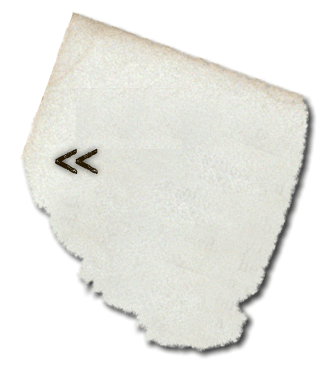

| 4.3 |
There are mnemonics for remembering bird calls. Listen to my evening sing-ing-ing-ing croons the vesper sparrow, But-I-DO-love you pleads the Eastern meadowlark or the Inca dove’s bleak no-hope. That fall, an American goldfinch frequented our trumpet tree with its airy Po-ta-to chip! and I thought how our bodies exude their own churling mantras: in the past, I-am-no-good then, please-just-breathe just-breathe. As the days wound back to darkness, a new chant became clear, red-tailed vireo that hums through Northern woods Here-I-am Where-are-you? weaving a nest of bark strips, pine, lichen and never is the song more true than when she lays her eggs, and cowbirds prey leaving the mother to mourn the disappeared work of her body in a solo of call and response. Each month our love offered up its question to the world. Here-I-am Where-are-you? as the ovums rose and disintegrated silently. We walked along scrolls of ocean, crows jagging the cliffs like elaborate shadows and felt the specific pain of Not-yet Not-yet.
| ...return to Table of Contents |



| 4.3 |
Seedfluff gathers in white canals along the path but how to locate the source: some bramble let-go into all possible green. Late March and craving the fixity of an object. To hear the bullfrog and see him at once. The blueprint of spring revealed itself so briefly at dawn. For two hours I could see, outlining the trees, a presence like slipping between the margins of loss. Turtle on the path now. Thirteen moons painted on its shell. And the blueprint of the boy tucked in its own sac: instructions for eyes, nerves, a spine. Waiting for the window to the next world to open, I say there is no knowledge like this but so many minor gladnesses. Blackbird. Cricket. Clay. Tulips flouncing open at midnight. Lightening in the belly, not long before the last dark gasp of sea. Instincts we are born with: suck, cry, sleep. To stand before a body of water and want to throw the palmed stone in.
| ...return to Table of Contents |



| 4.3 |
Under the ponderosa pine, a family of deer gathered in late autumn, chewing on chucked corncobs from August dinners or our windfall of mealy tree-apples. Some snowy nights dark with solstice they’d rush the yard kicking up drifts under the spun sky as if beauty had finally sprung a lock on the reserve midwinter requires. My father wanted to fell the pine, its hulking shadow dwarfing the porch, but was persuaded to let it die in its own time. My sisters and I are all grown, our swing-set hung with bird feeders and the picnic table, migrated to the woods’ edge. Maybe because the neighborhood has emptied of children and hammers no longer pound in the distance, a new season of deer has returned and just before my parents dine at the tidy hour of 5:30, they carry heaped trays out back, like demigods lay a spread of alfalfa, oats, clover along the table’s weathered periphery and the deer emerge in fives and tens, bend their necks to the splintered planks where platters of hot dogs and citronella candles had once been, to eat their evening meal, not questioning its arrival or presentation, each with a measured plot of molasses and grain, the last cinders of dusk falling into place while inside the house, my father draws the struck match to the candlewicks, my mother setting the table for two.
| ...return to Table of Contents |


